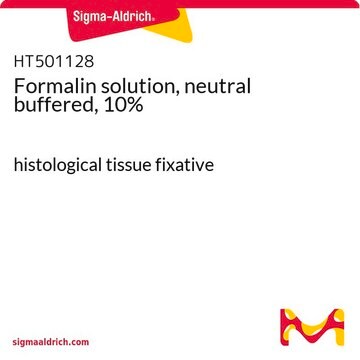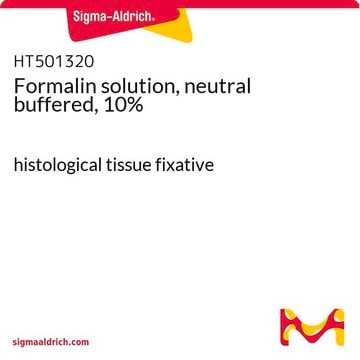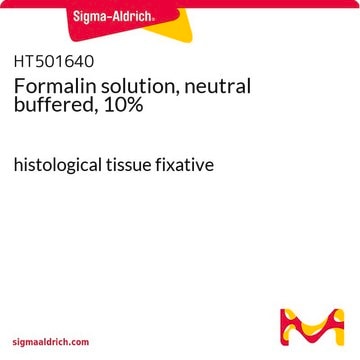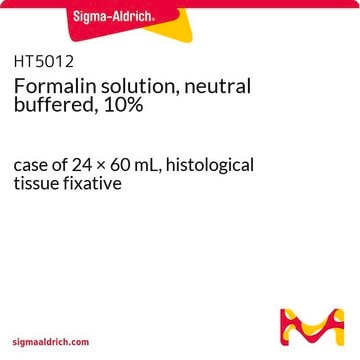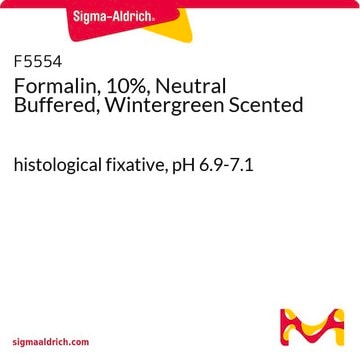HT5011
Disolución de formalina, tamponada neutra, 10%
case of 48 × 15 mL, histological tissue fixative
Sinónimos:
Formaldehyde, Methanal
About This Item
Productos recomendados
packaging
case of 48 × 15 mL
concentration
10% formalin (approx. 4% formaldehyde)
color
colorless
pH
6.90-7.10
density
1.080 g/cm3
application(s)
hematology
histology
storage temp.
room temp
InChI
1S/CH2O/c1-2/h1H2
InChI key
WSFSSNUMVMOOMR-UHFFFAOYSA-N
¿Está buscando productos similares? Visita Guía de comparación de productos
General description
Application
Packaging
Physical form
Storage and Stability
Related product
signalword
Danger
Hazard Classifications
Acute Tox. 4 Inhalation - Acute Tox. 4 Oral - Carc. 1B - Muta. 2 - Skin Sens. 1
Storage Class
6.1C - Combustible acute toxic Cat.3 / toxic compounds or compounds which causing chronic effects
wgk_germany
WGK 3
flash_point_f
185.0 °F
flash_point_c
85 °C
ppe
Faceshields, Gloves, Goggles, type ABEK (EN14387) respirator filter
Certificados de análisis (COA)
Busque Certificados de análisis (COA) introduciendo el número de lote del producto. Los números de lote se encuentran en la etiqueta del producto después de las palabras «Lot» o «Batch»
¿Ya tiene este producto?
Encuentre la documentación para los productos que ha comprado recientemente en la Biblioteca de documentos.
Los clientes también vieron
Nuestro equipo de científicos tiene experiencia en todas las áreas de investigación: Ciencias de la vida, Ciencia de los materiales, Síntesis química, Cromatografía, Analítica y muchas otras.
Póngase en contacto con el Servicio técnico